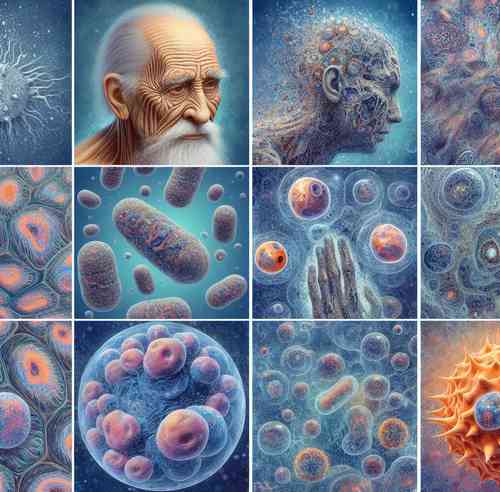What is autophagy and why is it a relevant factor in the delicate line between life and cell death?
Lourdes Massieu Trigo, doctor in basic biomedical research with a focus on neuroscience, explained that it is a process that occurs in all the cells of a body – from yeast to eukaryotes (that includes mammals) –, which is responsible for recycle damaged components, in order to renew them and build new molecules.
Autophagy was first identified in 1960, but its importance was recognized in 1990 through the research work of Japanese scientist Yahinori Ohsumi, who won the Nobel Prize in 2016 for these studies.
The word derives from Greek and refers to the idea of eat oneself
since it is a process in which the body’s cells take damaged proteins and break them down to form new molecules through sacs called lysosomes.
Although in the beauty industry this process is associated with having a youthful appearance, Massieu Trigo highlighted its relevance to conditions such as Alzheimer’s, Parkinson’s and other neurodegenerative diseases.
Efficient renewal system
The specialist from the Institute of Cellular Physiology of the National Autonomous University of Mexico (UNAM) explained that In the nervous system the autophagy process is very important, because neurons do not divide and live with us for many years; They need a very efficient system that allows them to renew their components to maintain the balance between protein synthesis and degradation.
.
He said that this process is deficient in aging, where The cells of our body, not only the neurons, but all the tissues, are losing efficiency in degrading the damaged content of the cells.
.
It is also recorded when there is the presence of neurodegenerative diseases, such as Alzheimer’s or Parkinson’s, since many proteins accumulate that are difficult to degrade, which causes neurons to accumulate many damaged organelles, and this damages their function and there is neurodegeneration.
.
To track the quality of autophagy (if it is excessive or deficient, it can be harmful) that occurs in the cells of an organism, researchers usually make an extract of the cell or brain region in order to track the levels. of proteins that participate in the process.
The doctor in basic biomedical research, whose work has focused on the study of the mechanisms of neuronal damage associated with acute brain injury, said that her research team has studied autophagy in the nervous system in very acute conditions, for example, when glucose levels in the brain are eliminated or decreased.
It is an organ that It is always very irrigated, it continually receives glucose through the blood, but when there is a cerebral vascular accident and a main artery, such as the middle cerebral artery, is obstructed, there is no irrigation in some area and a cerebral infarction occurs, and this causes glucose and oxygen not to be administered; It is an acute condition
.
Another extreme situation in which they have studied autophagy is with excessive supplies of insulin, a substance that removes glucose from the blood environment, so that it is captured in the organs. If we inject excessive insulin, there is no glucose in the blood and it does not reach the brain. When levels are lowered to very low ranges, humans can lose consciousness and enter a coma.
.
In these two conditions, autophagy stagnates and cannot develop efficiently, causing damage to organisms. For example, in the case of a cerebral infarction, deterioration in the brain may occur.
A question that guides the work of the Massieu Trigo research team is: What can we do to make autophagy more efficient in these two conditions that can occur in the human body?
In particular, they have decided to investigate a molecule called beta-hydroxybutyrate that improves the autophagy process in acute conditions. This is metabolized and produces a substance called ATP, which works as another energy alternative, instead of glucose.
When administered to organisms deprived of glucose, they found that they had more live cells than dead ones. We observed what beta-hydroxybutyrate does in non-acute conditions and detected that it improves the performance of lysosomes, which are strategic in the autophagy process. We think that beta-hydroxybutyrate is an interesting molecule, against aging conditions, or neurodegenerative diseases.
.
So far, the studies carried out by Massieu Trigo’s team indicate that with beta-hydroxybutyrate the autophagy process is more efficient, by recycling the damaged components of the cells, to renew them and build new molecules.
Today, research aimed at improving the performance of lysosomes in the autophagy process, through Beta-hydroxybutyrate, is known as rejuvenation therapies, although there is still much to explore in this regard.
he concluded.
